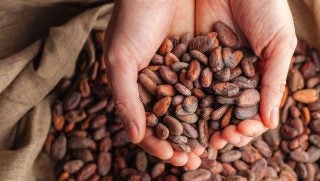In a report released today, the House Select Subcommittee on the Coronavirus Crisis has found that meat processing and packing companies worked closely with allies in the Trump administration to help keep facilities open in the early weeks of the pandemic, even to the detriment of employee health and safety. The subcommittee’s report argued that food-shortage claims were more manufactured than genuine, thus amplifying the urgency for workers to stay on the job and the industry to be deemed “critical infrastructure” in an executive order by President Donald Trump.
Specifically, the report said that executives from large ag companies such as Smithfield Foods and Tyson Food spoke directly with members of the Trump White House to ensure that they would remain open.
In response, the North American Meat Institute says the report “distorts the truth about the meat and poultry industry’s work to protect employees during the COVID-19 pandemic.”
“The Meat Institute and its member companies voluntarily provided hundreds of thousands of pages to the Committee,” said Julie Anna Potts, President and CEO of the North American Meat Institute. “The report ignores the rigorous and comprehensive measures companies enacted to protect employees and support their critical infrastructure workers.”
Even with the steps that had been taken, tens of thousands of processing and packing facility employees contracted COVID, and scores deaths associated with the virus were recorded.
“The meat and poultry industry, like many industries, was challenged by the pandemic in the spring of 2020,” Potts said. “As more became known about the spread of the virus, the meat industry spent billions of dollars to reverse the pandemic’s trajectory, protecting meat and poultry workers while keeping food on Americans’ tables and our farm economy working.”
Internal industry documents showed that “despite awareness of the high risks of coronavirus spread in their plants, meatpacking companies engaged in a concerted effort with Trump Administration political officials to insulate themselves from coronavirus-related oversight, to force workers to continue working in dangerous conditions, and to shield themselves from legal liability for any resulting worker illness or death,” according to the report, which was released by the Democratic-controlled subcommittee.
Public opinion toward these meat facilities have been dicey for the past two years. For example, Tyson fired seven plant managers after a lawsuit alleged they were betting on how many employees would contract the coronavirus — something that did not put a positive face on the industry.
And reinforcing concerns in the early days of the pandemic in spring 2020, Tyson took out a full-page ad in The New York Times warning of food shortages ahead.
According to The Associated Press, Democratic Rep. Jim Clyburn, who leads the subcommittee, said U.S. Department of Agriculture officials and the industry prioritized production and profits over the health of workers and communities as at least 59,000 workers caught the virus and 269 workers died.
But the industry itself aims to highlight what it says was prevented, not what took place.
“The House Select Committee has done the nation a disservice,” Potts said. “The Committee could have tried to learn what the industry did to stop the spread of COVID among meat and poultry workers, reducing positive cases associated with the industry while cases were surging across the country. Instead, the Committee uses 20/20 hindsight and cherry picks data to support a narrative that is completely unrepresentative of the early days of an unprecedented national emergency.”
The report is based on communications between industry executives, lobbyists, USDA officials and other documents the committee received from government agencies, and several meat companies, the sum of which account for about 85 percent of the beef market and 70 percent of pork production nationwide.


